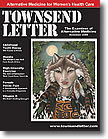At its 29th Session in Geneva, the Codex
Alimentarius Commission (called CAC or Codex) failed to move the
vitally important, consumer-protective "Global
Strategy on Diet, Physical Activity and Health" (GS) from last
item on agenda. Following the precedent set by the nutrition-hostile
Codex Committee on Nutrition and Food for Special Dietary Uses (CCNFSDU,
Bonn, Germany), whose discussion last November moved the subject of
GS implementation from item 2 to item 11 on the agenda, guaranteeing
that no time remained for discussion, Codex once again placed this
consumer-friendly discussion last. None of the 180+ members chose to
protect consumer's health by insuring adequate time for that important
discussion. Codex meetings end promptly on schedule, a fact relied
upon by Dr. Rolf Grossklaus, the CCNFSDU Chair, who recently stated
that "nutrition has no place in medicine" (CCNFSDU, 2003).
Codex, the world's food standards setting body, is divided by a deepening
conflict over the importance of protecting consumer's health and health
freedoms vs.
the importance of trade considerations and multinational corporate health.
The disconnect between these agendas has been brewing since the founding of
Codex as a Special Project of the World Health Organization (WHO) and the Food
and Agriculture Organization (FAO) at the request of the United Nations. During
last year's session (July 4-9, 2005, Rome, Italy), the WHO and FAO chastised
Codex for "failing to make a significant contribution to human health." Dr.
Kirsten Leitner of WHO suggested that Codex "determine whether it has
a relationship to nutrition and, if so, what that relationship is [sic]" and,
finally, find ways to implement the WHO GS. The Codex Committee on Nutrition
and Food for Special Dietary Uses (CCNFSDU) and Codex Committee on Food Labeling
(CCFL) were mandated to provide full discussion during their meeting before
the current Codex Commission meeting that took place this last July (2006).
The official Codex website, http://www.codexalimentarius.net/web/index_en.jsp,
notes, "The Codex Alimentarius Commission was created in 1963 by FAO and
WHO to develop food standards, guidelines, and related texts such as codes
of practice under the Joint FAO/WHO Food Standards Programme. The main purposes
of this Programme are protecting health of the consumers and ensuring fair
trade practices in the food trade and promoting coordination of all food standards
work undertaken by international governmental and non-governmental organizations." Despite
this articulation of the importance of consumer health, in practice, Codex
has made decisions that serve the beneficiaries of the $400 billion global
annual food trade. According to health advocates and watchdogs like the Natural
Solutions Foundation (www.HealthFreedomUSA.org), international consumer health
and health freedom are severely undermined by the strongly pro-trade – and
anti-health – actions of Codex in the face of an increasingly globalized
food supply.
Until last year's Codex meeting, concerns about Codex decisions that label
nutrients as toxins, approve highly profitable, but dangerously high, levels
of pesticides and antibiotics, promote questionable procedures such as irradiation
of food, the use of growth hormones in animals, and genetically modified foods,
and work to weaken organic food standards went largely unvoiced by countries,
because consumer voices were so underrepresented compared to corporate ones.
Corporations routinely use their significant resources at Codex to sponsor
delegates from developing nations, lobby lucratively for their agendas inside
governments and agencies, and form and fund non-governmental organizations
designed to further their positions. Corporate success has been outstanding
during the 43 year-history of Codex.
With the mandated consideration of implementation of the GS by Codex parent
organizations WHO and FAO at last year's Codex Commission meeting, a potentially
audible voice for consumer concerns was generated. This voice depended upon
the outcome of the deliberations of a WHO electronic forum open to Codex member
countries, followed by deliberations on the GS implementation by CCNFSDU (November,
2005, Bonn, Germany) and CCFL (May, 2006, Ottawa, Canada) since these two committees
were deemed to be the most suitable venues for nutrition-focused discussion.
Giving voice to consumer interests, South Africa proposed 11 pro-health strategies
for this implementation
(http://www.who.int/nutrition/comment_southafrica.pdf) and reiterated them
at the CCFL meeting, inserting them into the final report of that committee
for Codex deliberation. However, the lack of allotted time during that committee
has once again placed a roadblock in front of that deliberation.
Rima E. Laibow, MD
Natural Solutions Foundation
973-300-1519
healthfreedom@optonline.net
www.HealthFreedomUSA.org
|



![]()
![]()

